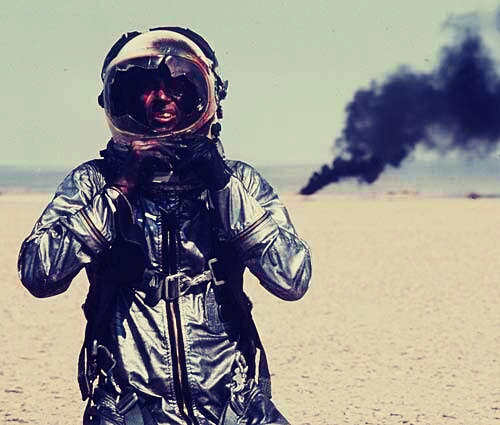There are dual, deep-seated reasons for the modern preoccupation with apocalypse, which has never been more pronounced in literature and art. Part of it has to do with a dissatisfaction with what we’ve created and will create. It’s the ultimate nostalgia: We dream of a board clear even of us. The other part of the equation, I think, is a collective attempt to wrest control of what may turn out to be the doom of the species, the extinction that could ultimately be our fate. Like a terminally ill person with a handful of pills, we’d like the endgame to be played by our rules. In our sci-fi dress rehearsals, at least, we’re in charge.
On the topic of apocalypse, Frank Bures has penned an especially graceful Aeon essay, trying to make sense of his–and society’s–foreboding feelings in the Anthropocene. He believes it has to do with the ever-growing machine we’ve invented, which provides for us in fascinating ways and may be the death of us. As Bures writes, we have the “feeling that we are part of something over which we have no control, of which we have no real choice but to keep being part of.”
The opening:
One day in the early 1980s, I was flipping through the TV channels, when I stopped at a news report. The announcer was grey-haired. His tone was urgent. His pronouncement was dire: between the war in the Middle East, famine in Africa, AIDS in the cities, and communists in Afghanistan, it was clear that the Four Horsemen of the Apocalypse were upon us. The end had come.
We were Methodists and I’d never heard this sort of prediction. But to my grade-school mind, the evidence seemed ironclad, the case closed. I looked out the window and could hear the drumming of hoof beats.
Life went on, however, and those particular horsemen went out to pasture. In time, others broke loose, only to slow their stride as well. Sometimes, the end seemed near. Others it would recede. But over the years, I began to see it wasn’t the end that was close. It was our dread of it. The apocalypse wasn’t coming: it was always with us. It arrived in a stampede of our fears, be they nuclear or biological, religious or technological.
In the years since, I watched this drama play out again and again, both in closed communities such as Waco and Heaven’s Gate, and in the larger world with our panics over SARS, swine flu, and Y2K. In the past, these fears made for some of our most popular fiction. The alien invasions in H G Wells’s War of the Worlds (1898); the nuclear winter in Nevil Shute’s On the Beach (1957); God’s wrath in the Left Behind series of books, films and games. In most versions, the world ended because of us, but these were horrors that could be stopped, problems that could be solved.
But today something is different. Something has changed.•

